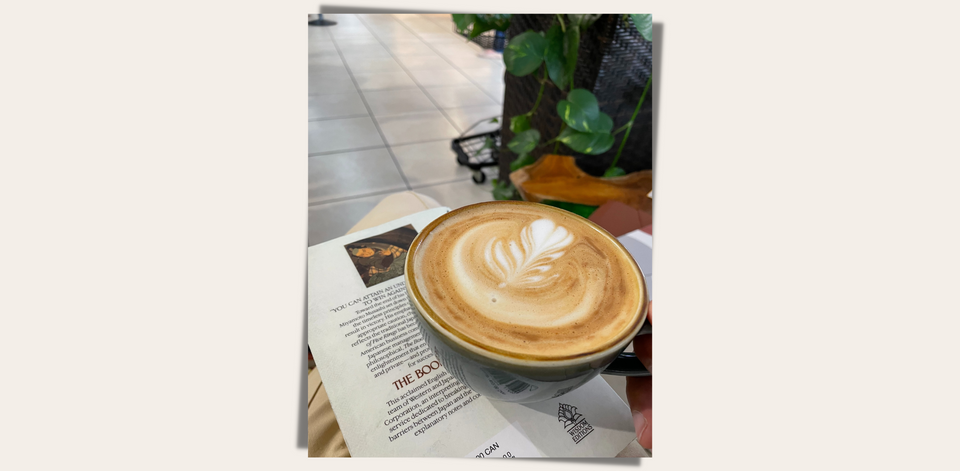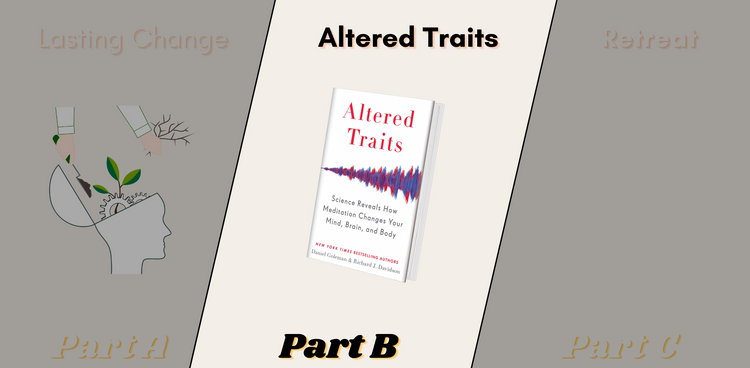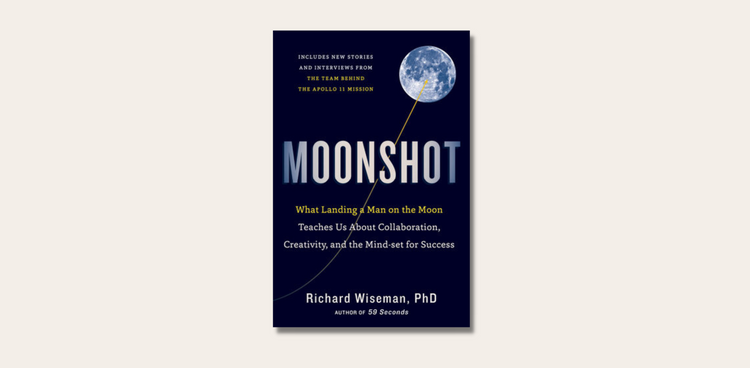Miyamoto Musashi & The Art of Practice

Think of the criteria you consider before you depend on somebody else. Do you meet the criteria?
This week I read “The Book of Five Rings” by Miyamoto Musashi. But how much can we learn from a man that spent his life wandering medieval Japan, occasionally killing people in a sword duel?
A surprising amount. When the stakes are literally life or death, complete trust in your abilities is a non-negotiable.
Musashi got that trust from decades of ceaseless practice. Almost every paragraph ends with a variation on these three sentences:
- “This must be studied carefully.”
- “This must be practiced diligently.”
- “One must understand this thoroughly.”
When someone says “Trust the Process” today, they describe Musashi’s philosophy. Halfway through the book, he sums it up perfectly:
You must walk down the path of a thousand miles step by step, keeping at heart the spirit which one gains from repeated practice with whomever one can get to practice with, and knowledge attained from whatever experiences you can come by, without impatience.
Today’s article goes through my favourite passages & how they apply to a world where less people try to stab you with a longsword.
🪨 There’s no one to depend on
Think of the criteria you consider before you depend on somebody else. Do you meet the criteria?
Zen practice is clearly defined by self-reliance. In Zen practice, the confidence in one’s self comes from evidence: You must earn your own trust by proving over and over again your dependability.
Do you let yourself down in the crucial moments?
Do you come in clutch and deliver when it matters?
Do you slack off in moments of preparation and it shows in moments of action?
According to Zen tradition, and Musashi, this essential confidence - literal trust in yourself - must be earned by constant practice. Diligent and thorough practice, every day.
💰 Recognise your value
When we look at the world, we see various arts offered as items for sale. Men think of themselves as commodities for sale. There is a trend for men to invent various tools and sell those instead of their faculties. This thinking is like separating the seed from a flower and valuing the seed less than the flower.
Truly resonated with me. You are not a commodity. Assuming that you have put in the work and become great at what you do, you are not a product. Yes, you may take money for your services. But don’t you want to work a project basis? Work on an individual basis, being paid for what you do? Not for an hour of your time.
❓ Define Good Work
The necessary accomplishments of the carpenter are that the work not be warped out and the joints are aligned. The work must be smoothed out with a plane and not polished haphazardly so as to disguise defects.
The Key Question here - What are your necessary accomplishments? If you want to do good work - in the Zen context - you need to understand first what defines it.
So if you desire to do excellent work - how could you be so smug to assume you’ll just land there on accident?
It is the prerequisite to first understand the “necessary accomplishments”. For each task you do. What is shocking to me is that before reading this book, I never even considered this. When it is naturally so crucial to do great work.
⚡ There’s Power in the Process
Anybody, the first time he takes up a long sword in one hand, will find it heavy and difficult to wield. All things, at first try, are difficult to handle.
I think I like to be good at things, instantly. But that’s not how it works. That’s a fixed mindset. Of course you won’t be amazing at something just by virtue of starting out. It will be hard, and it will be work. And that does not make you a worse human. If anything, it makes you better, because you are able to adapt. So trust the process.
🔥 The Essence
You must walk down the path of a thousand miles step by step, keeping at heart the spirit which one gains from repeated practice with whomever one can get to practice with, and knowledge attained from whatever experiences you can come by, without impatience.
This, to me, perfectly sums up what I have taken away from the book. This relentless dedication to the process. Recognition that one, inherently, is not excellent. That has nothing to do with your worth. But excellence is nowhere to be found in you, inherently. You have the potential, but you need to walk down the road, taking the time it takes, to become a true master at whatever you strive for.
The most beautiful part: That road never ends. It takes exactly the right amount of time. And keep in mind that second part too:
[…] knowledge attained from whatever experiences you can come by […]
Quite possibly, you’ll feel like this can’t possibly be the way. But it is. If you take the wisdom on offering, it is.
🔨 Hammering home the Point
If you think that you are the only one who can attain my Heihō in the entire world, if you are deeply committed to the eventual mastery of this path, if you practice day and night polishing your skills through and through, then you will be the only one who can attain such freedom and such power to perform miracles.
Take it to heart. Practice is hard work.
❗ You know what you’re capable of when you put in the work. You know what you’re capable of when you don’t.
You know the feeling of disappointment when you pick the second over the first. But you also know the feeling of fulfilment when you choose the first one.
Always question, never settle. And at the end of your life, you will be able to look back and grin contently - just as you can today.
❕ Give your All.
To pass through life, there is the need to have a spirit, to be decisive about exerting all of one’s energies to overcome difficulties.
If it were easy, everyone would do it. And not everyone has the drive to do it. Which is cool - live & let live. But if you have the drive, what a tragedy it is to let yourself down. There is one simple demand that you put on yourself, and you better oblige: Do the hard things.
Or make them easy, find a better way - dealer’s choice. But you won’t be able to simplify everything. Sometimes, you just have to double down. And when that time comes, be ready & be prepared to give your all.
🍋 Zest
In large-scale battles, when the enemy starts to employ a particular tactic, if you show him your determination to check him, your enthusiasm will overwhelm him and he will change his tactics.
Never lose your zest. If “Let’s go!” remains your catchphrase, you’ve done well. This is not limited to battles. Bring this energy to a group project, and the tone is set. Bring it to a fight, and the tone is set. Same difference.
🔁 Begin Again
In this situation abandon your previous plan and with a spirit of starting afresh, get back into your timing and you will be able to discover the way to win.
At any point, in combat or in life, you have the ability to Begin Again. And recognise the immense power in it. Just check out the page - but Musashi puts it beautifully.
Basically, sometimes you find yourself out of rhythm. Just like in music, you need to take that one measure of break - begin again - and jump back in to be back in tune. Never be too proud to miss one beat to jump back into the groove.
🔎 Focus
In the path of Heihō, always think of Sotō goshu and suddenly switch from worrying about small details to concentrating on the big picture.
Another form of catching your mind when it is carried away. Once your train of thought is off chasing after a little tangent, your mind is no longer available for full reflection. If you catch yourself in those moments, refer back to your necessary accomplishments. Zoom out to find your step.
💌 Amor Fati
Think of all the enemies as your own soldiers. Think that you know how to make the enemy move as you wish and try to move the enemy around freely.
Again, gotta adapt the concept for the broader concept. But this is exactly what I was doing with my assignments. Identify the fixed parts - those you cannot change - and move around everything else just as you desire.
The report wasn’t engaging at all - so make it about something you’re truly passionate about and focus on the narrative, and suddenly you love doing it.
Whatever is placed in your way, you have some degree of influence on it. Worst case, it’s just about your perception. But often enough, you have ways of working with it.
And observe the shift here: The enemy is no longer your enemy - it is one of your own. Nothing to be rejected or avoided, but to be worked with.
The enemy - or the obstacle, whatever it may be - will be there either way. But one way fosters less resistance, and you know about energy efficiency all too well. Love whatever is placed in your way. Because, quite frankly, it is the way.
🛣️ Winning, but principled
Attempts to achieve victory over an opponent by means of the use of an extra long sword due to ignorance of the principles of Heihō are manifestations of a weakness of spirit and are seen as the Heihō of the weak.
The immediate thoughts I jotted down in the book when I read this were “If you cheat yourself, you will feel the failure”. And it relates to this Dame Lillard Quote I keep coming back to:
"A lot of times, those situations are handled way before the time comes. In the summer I think when you truly prepare yourself, with training and conditioning and things like that, when you cheat yourself, you fail in those moments, You crash. When you really put the time in, whether will people see it or whether people will know it or not, it will always come to light”
The point: you can try to find shortcuts to success - and you should always exploit opportunities when you find them. But don’t fool yourself into thinking you could get where you want to be without practicing the principles. It is this practice that leads to the opportunities. This is not to say one should be overly rigid and never take the third door. But recognise that to excel in those moments, you need to do the work before. Perfectly illustrated in the next quote I marked in the book:
In the path of Heihō one cannot be so rigid as to insist that "this is the way it has been since ancient times," or "this is the modern way to do it".
There’s no right way to do it, period. But there is always diligent practice. The key in all of Musashi’s writing is transferability. He speaks about very little specifics - and even if he did, it would be pointless to me because it would be specific to sword fighting. Instead, he talks about principles. Principles endure time and context.
♟️ Vision and Pattern Recognition
As I have stated before, if one fixes one's point of concentration on minor matters, one loses sight of the major concerns, and this is turn creates vacillation of the mind and causes one to lose opportunities for a sure victory.
My notes while reading: By virtue of training, obtain true vision. Purely a matter of pattern recognition (→ Chess). I feel the chess analogy is very helpful here.
When starting out, one gets lost in tunnel vision, constantly. Playing through all the variations that moving one pawn results in missing the free queen on the other side of the board.
Playing more and more, one learns to automatically perceive such patterns, which leads to a broader view of the board. Because less resources are tied up in pursuing pointless matters - they have been pursued before and the result kept in mind.
The same applies to all other domains. Ceaseless training and practice makes you pursue all the pointless options in advance. When it matters, you can focus on the big picture.




Comments ()